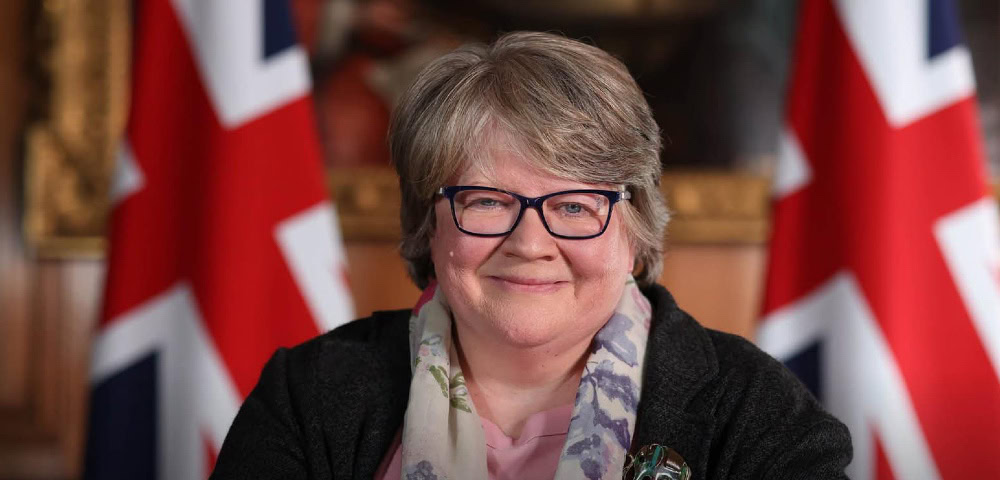
UK’s New Deputy PM Thérèse Coffey Has A History Of Voting Against Gay Marriages

Newly named Deputy Prime Minister and Health Secretary of the United Kingdom, Thérèse Coffey has a history of opposing and voting against same-sex marriages and abortion rights.
Coffey previously worked as a minister for work and pensions under the Boris Johnson government. She was the first appointment to the new cabinet under Prime Minister Liz Truss’ leadership.
Voting against same-sex marriages in 2013, Coffey was also in a group of 15 MPs that shared concerns about the “impact on society’s understanding of marriage and the implications of the bill for free speech and civil liberties” and attempted to block same-sex marriages after the vote had passed through the House of Commons.
Coffey argued in 2013 that the government had tried to “redefine marriage” without the power of attorney, reported USA Today. Coffey also opposed same-sex marriages in Northern Ireland in 2019 and voted against the Assisted Dying Bill in 2015.
‘I Have A Strong Faith Background’
In 2020, Coffey reaffirmed her views against same-sex marriage in an appearance on Sky News where she stated, “I have a strong faith background about what is a legal partnership and what is marriage, but that is not a question for today.”
In an interview with Sky News after the overturning of Roe v Wade by the US Supreme Court which removed the federal right to an abortion, Coffey stated that she “would prefer people didn’t have abortions” but was “not going to condemn people that do.”
Coffey also shared, “I don’t know that I wear my religion on my sleeve, but it is undoubtedly part of who I am,” stating that when there would be “great ethical issues” in Parliament, she would “of course participate in that.”
Coffey has recently voted against the production of at-home abortion pills, which was introduced at the beginning of the Covid-19 pandemic and made permanently available throughout England and Wales.
As a practising Catholic, Coffey previously introduced a motion into Parliament in 2010 which called for women seeking an abortion to undertake “mental health assessments.”
Deeply Concerning Appointment
Chief executive of British Pregnancy and Advisory Service Clare Murphy stated that it was “deeply concerning” for a health secretary to “place their personal beliefs above expert clinical guidance.”
Speaking to the BBC, Murphy raised Coffey’s vote against the at-home access to abortion care and attempt to “recriminalise women who end their own pregnancies without the approval of a doctor”, which went against the advice of leading medical bodies including, “Royal College of Obstetricians and Gynaecologists, the Royal College of Midwives and the BMA.”
“We need a health secretary who wants to improve access to a medical procedure that one in three women will need in their lifetime, not impose further restrictions,” Murphy said.
Coffey is set to face the challenge of resolving issues within the National Health Service (NHS) in the UK, which include, the staffing crisis, predicted waves of Covid-19, possible industrial action by healthcare staff over pay, high bed occupancy rates in hospitals and challenges in mental health, ambulance services and how the cost-of-living crisis may impact access to health services.









